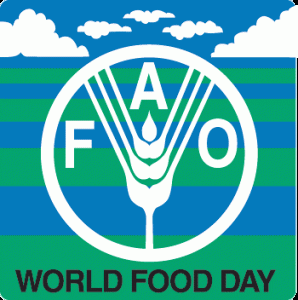
The Food and Agriculture Organization of the United Nations celebrates World Food Day each year on October 16th.
It’s World Food Day, which promotes awareness of the planet’s most challenging food issues, including eradicating global hunger. All food production depends on environmental health, but food production itself can harm the planet.
So to address hunger and increase food security, we’ll need to address the environmental impacts of food production and how the food choices we make every day affect the planet.
These choices affect the stability of the climate, the availability of clean drinking water and running rivers, and the persistence of native habitats and the wildlife they house.
No matter our political or cultural differences when it comes to food, there’s one trend that is clear: across the globe, we are making the choice to eat more meat. Read More »











